#angrboða
Text
First post. God of War fanart
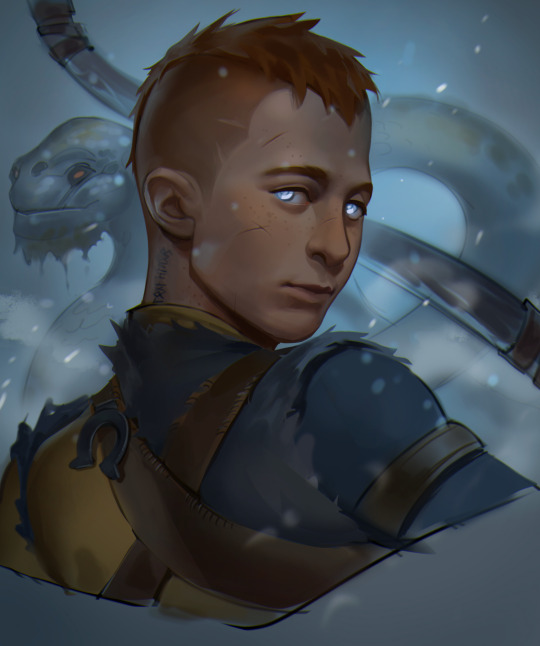
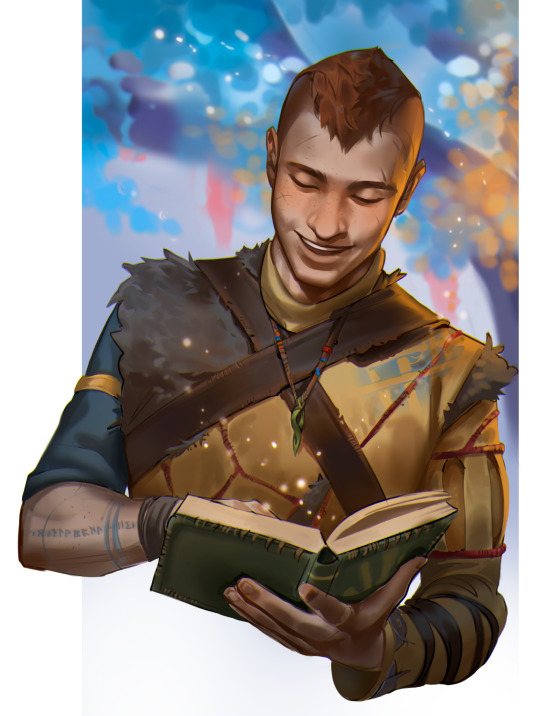

8K notes
·
View notes
Text
phewww first art post
hc about Angrboda doing whatever expression shes drawing + Atreus reaction
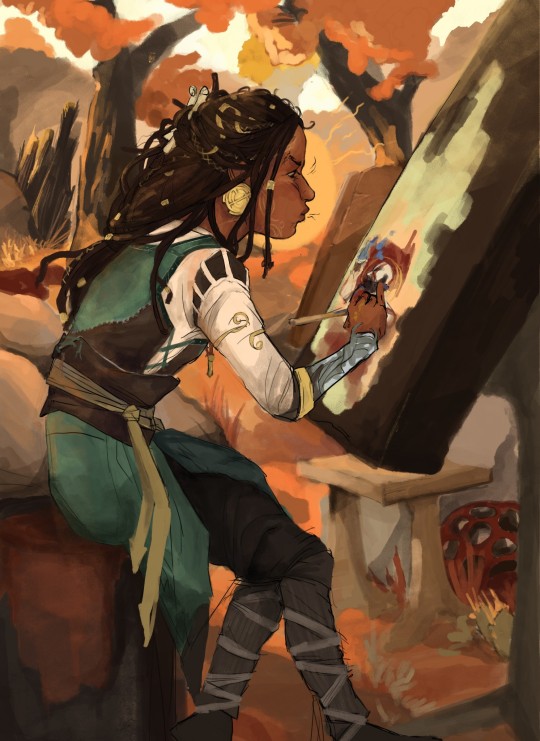
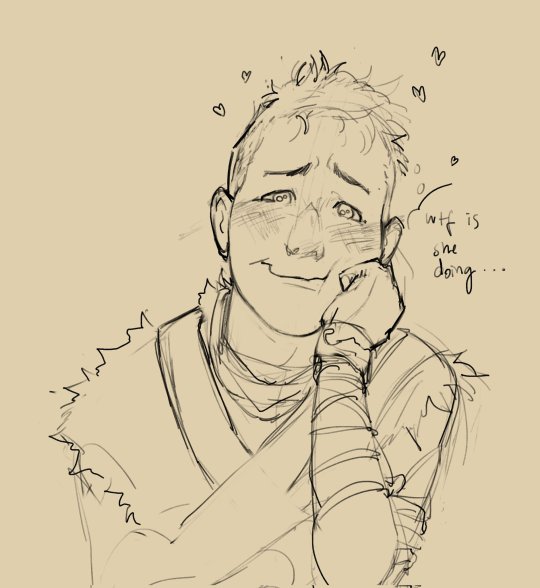
5K notes
·
View notes
Text
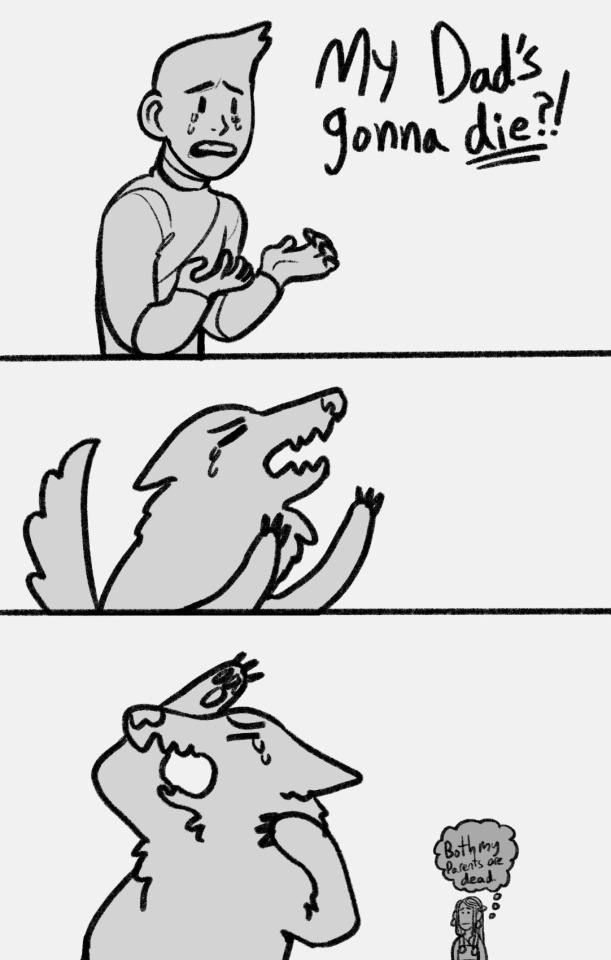


I loved Atreus’ vacation in Ironwood
#Atreus#angrboda#angrboða#Loki#god of war#god of war ragnarok#god of war ragnarök spoilers#gow#2022#fanart#100#comic
4K notes
·
View notes
Text
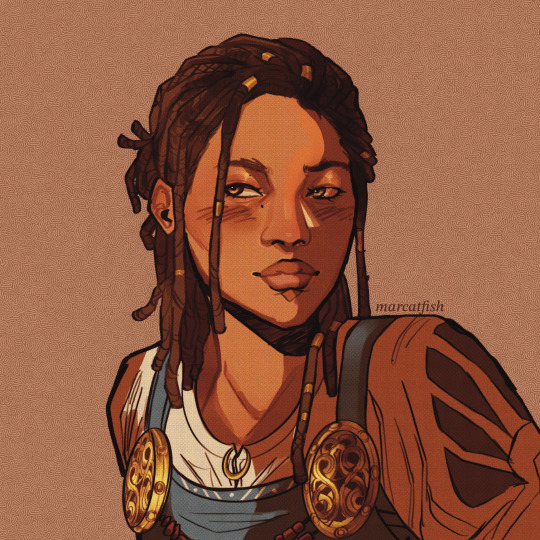
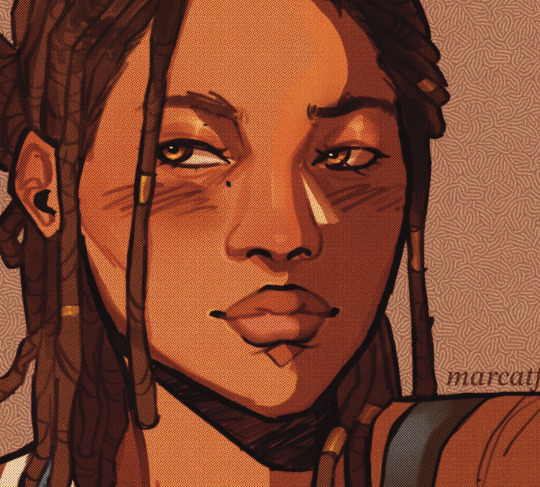
posting my favorite giant just in time for the 3rd week of octobe.
#digital art#digital illustration#illustration#illustrator#artistic#artists on tumblr#digital painting#art#artwork#fanart#god of war ragnarok#god of war#angrboda#angrboða#angrboda gow#gow fanart#blacktober
476 notes
·
View notes
Text
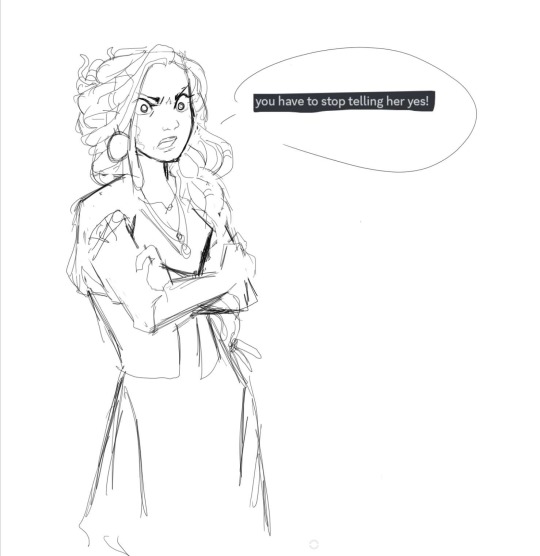
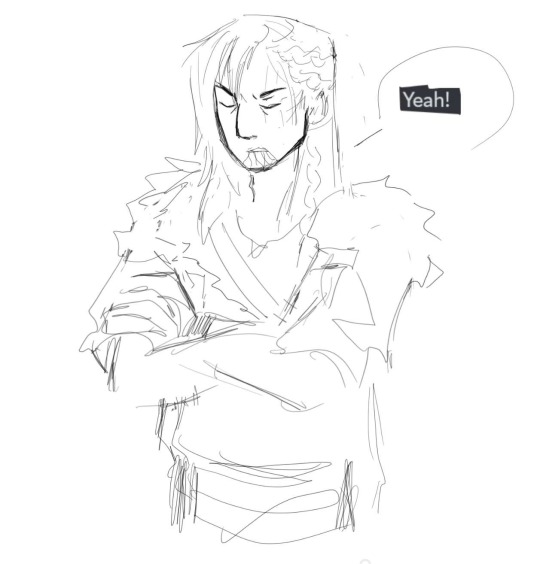

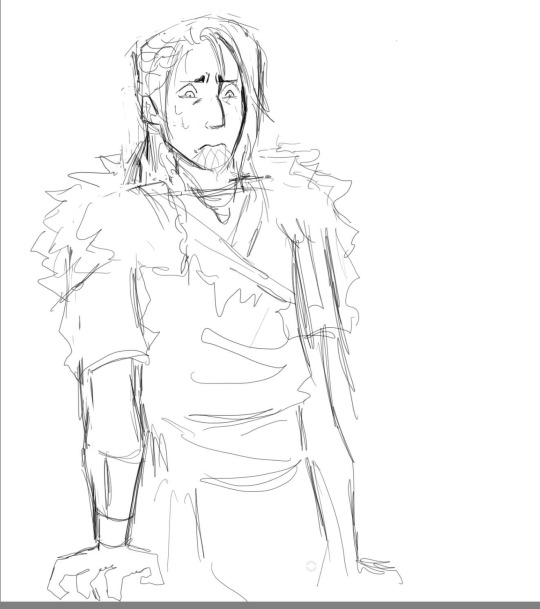
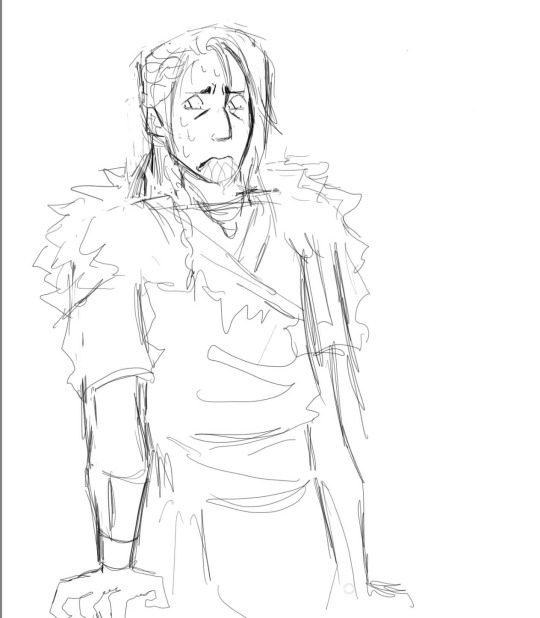
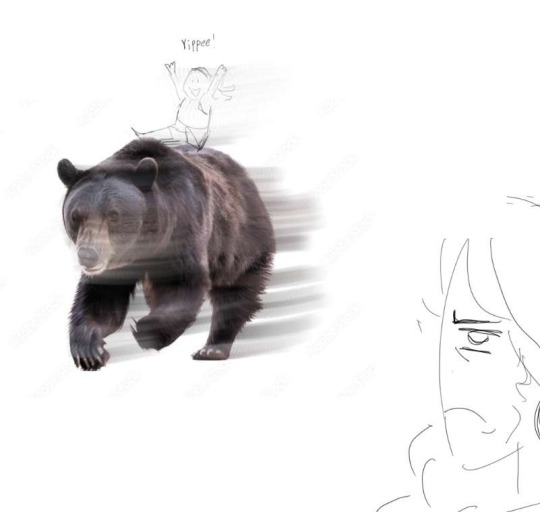
Based on a conversation with @gravitymooms about Atreus being a girl dad who can’t say no to hel
I used my lie of omission Loki design (which if you haven’t read still go check it out) cause I haven’t yet come up with an adult Atreus design BUT I WILL EVENTUALLY (also may post the hel design later)
Might return and fix this later but 🤷 only time will tell
#my art#art#bagel art#god of war#gow#atreus#angrboda#angrboða#hel god of war#gow atreus#gow angrboda#atreboda
212 notes
·
View notes
Text
a day in ironwood
#angrboda#angrboða#god of war#god of war fanart#god of war ragnarok#my animation#my art#my painting#digital art#digital painting#painting#fanart#artists on tumblr
2K notes
·
View notes
Text

Absolutely stunning piece from Johanna Polle (website / Instagram / Etsy shop) titled "Loki's Kin."
#art#loki#sleipnir#sigyn#angrboða#hel#fenrir#jormungandr#rokkr#rokkatru#heathen#norse pagan#pagan#paganism#heathenry#norse paganism
274 notes
·
View notes
Text
One of my favorite things of GoW 4 and 5 is tattoos.
GoW is one of the few games in which almost all characters have tattoos, BIG ones and in very visible places. The fact that the good guys (specially Atreus and Kratos being the protagonists) get to have badass looking tattoos is a huge step for destroying the stereotype of “tattoos = delinquent/bad”.
In most games the only characters having tattoos are usually the bad guys o simply just men.
But specially in GoW Ragnarök we get to see women having huge badass tatts (even facial ones on Angrboda). I absolutely love this. I’m a woman with several big tattoos (as you know I’ve Atreus neck runes tattoed) and I get a lot of comments saying “tattoos make women less feminine”. Seeing Sif being buffed, tattooed AND being so damn pretty and feminine proved that wrong! I just love it.
It was about damn time to normalize women being covered in tattoos and still being super feminine and cute!

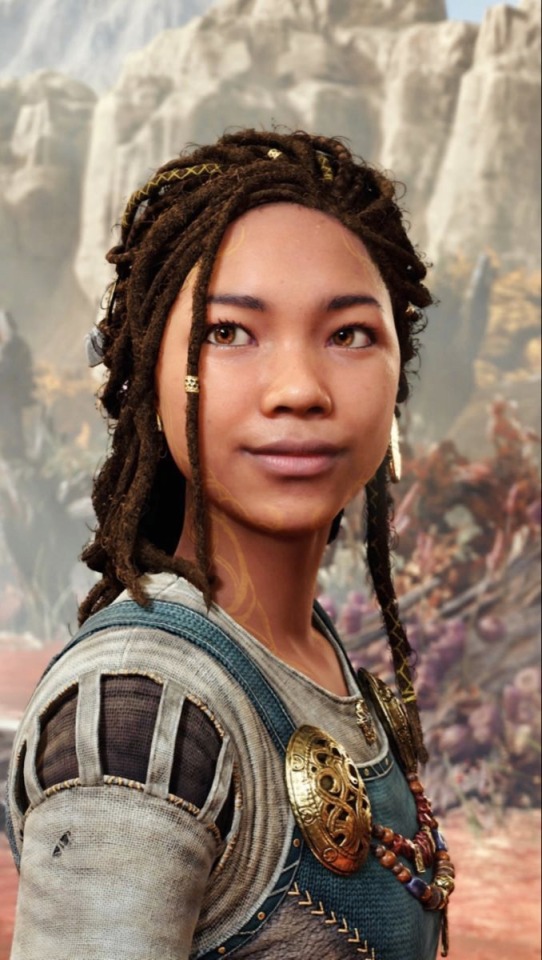

(Ps: Thrud isn’t very feminine tbh but I dont care! She’s rocking those sleeves tatts I love her)
#own#god of war#god of war ragnarok#kratos#atreus#thrud#thrud thorsdottir#sif#lady sif#angrboða#angrboda#tattoos#viking tattoo#nordic tattoo#video game tattoo#women in video games
2K notes
·
View notes
Photo
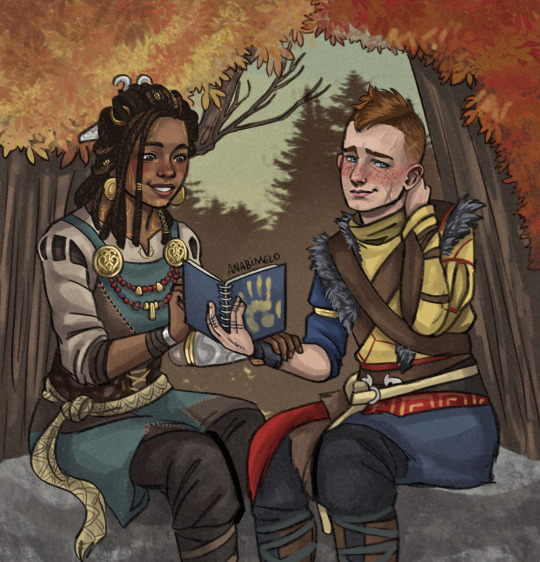
INPRNT
#gow#god of war#god of war ragnarok#atreus#angrboda#angrboða#god of war: ragnarok#gowr#god of war loki#god of war atreus#art#my art#god of war angrboda
2K notes
·
View notes
Photo
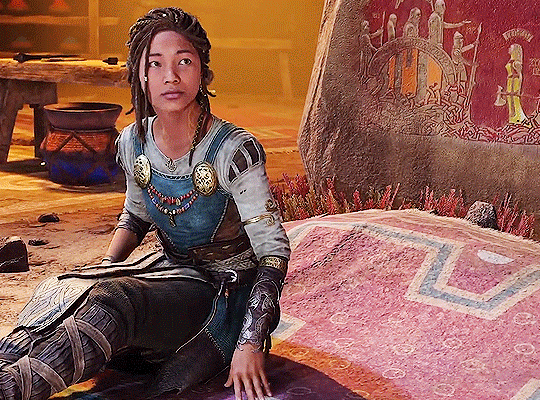
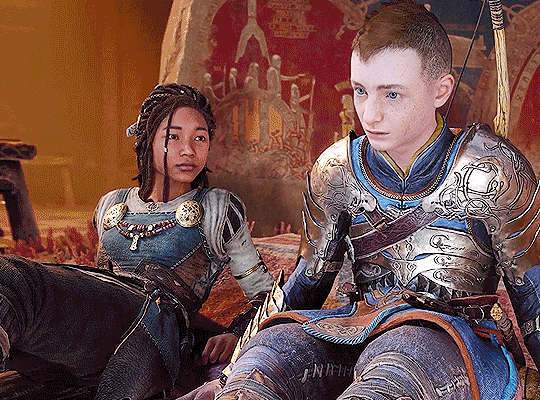
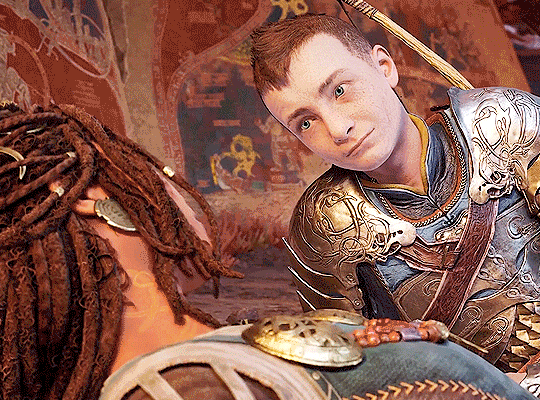
we’ve gotta be more than a bunch of stories with our endings already written.
#god of war#god of war ragnarok#god of war ragnarök#god of war 5#gow#gow ragnarök#gow ragnarok#god of war gifs#my gifs#atreus#angrboda#angrboða#i haven’t created gifs since 2015 omgggg#im so proud i still can make gifs??#godofwargif
1K notes
·
View notes
Text

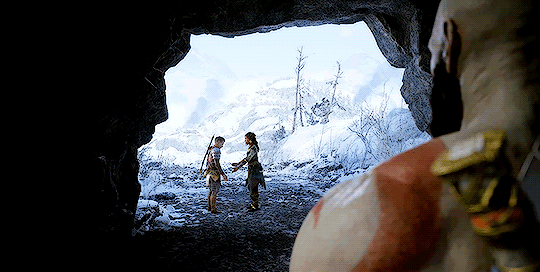

"I trusted her with my life; I trust her with my son."
—Kratos about Angrboda with Atreus in God Of War Ragnarök
#gamingedit#godofwaredit#godofwarragnarok#gowedit#gowredit#god of war#god of war ragnarok#gow spoilers#god of war ragnarok spoilers#god of war spoilers#Atreus#angrboda#gow angrboda#angrboða#videogameedit#dailygaming
2K notes
·
View notes
Text
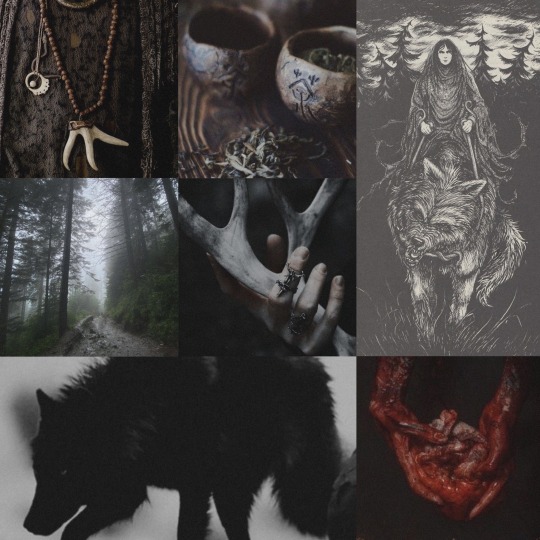
• a moodboard for Angrboða, Mistress of the Ironwood•
347 notes
·
View notes
Text

you must hit the gym first skjoldr
#maybe sad in the end of the line of these four#skjoldr is only motal#i'm sad#skjoldr#atreus#thrud#angrboða#god of war#my art#god of war ragnarok
717 notes
·
View notes
Text
On God of War and "canon" in Norse mythology
Playing God of War: Ragnarök and reading writing about it reminds me of something a lot of people have trouble internalizing about Norse myth, which is is that
The vast, overwhelming majority of Norse mythology is lost
and
There is no "canon" in Norse mythology
The concept of "canon" in religion is, at least in the west, very much a Christian thing (yes, it's also a feature of other religions). The idea that there is an authorized, central, divinely ordained, "official" central set of facts which are true, and everything else is fanfiction at best or heresy at worst.
And this is something we've taken with us into our general media criticism, hundreds of thousands of words exchanged between people debating which parts of Star Wars or the MCU are canon, or endlessly cycling through interpretations of what parts of Tolkien's mythos apply to each part of the Lord of the Rings or the Hobbit. I've participated in those discussions, and they can be a lot of fun, but it's worth remembering that this is only one of multiple ways to approach writing and narrative.
Norse mythology has no canon. There is no set of texts that have been declared by any central authority to be "the truth" of the Allfather, or the most correct depiction of Thor. Even in its own time, before its suppression by Christianity, Viking-age sailors, farmers and warriors would not have understood their religious practise as bounded by a finite and defined set of stories. It was an oral tradition, transmitted by telling and re-telling.
Your skjald knows some stories of the gods, maybe the guy the next town over knows some different ones, and maybe you go on a trading journey with a guy from Norway who knows completely different stories and you take those home with you where they become a part of the local rotation.
The primary sources for most Norse mythology (and certainly for God of War: Ragnarök) are the Prose Edda and Poetic Edda, two collections of texts compiled in the 13th century in Iceland by Snorri Sturluson, a Christian poet and politician, as well as possibly other contributors at the same time.
They are limited by their geography, consisting only of those stories that survived in Iceland, and limited by their time period. The Viking Age is generally considered to have ended around 1050 CE, so Sturluson was compiling these stories two hundred years after the time when Norse paganism would have been the dominant religious practise in Scandinavia or indeed Iceland.
We have other sources than the Eddas, of course, but they are painfully limited: Runestones and archeological artifacts, as well as stories told about the Vikings by people who weren't them, which obviously comes with a lot of biases. The Viking-era Scandinavians themselves simply didn't leave any substantial body of written sources that survived.
Sturluson being a Christian, writing for Christian audiences, also introduces a lot of suspicion of tampering. He might have had incentive to avoid recording certain stories, for fear of being accused of spreading heresy, and he may have edited or altered aspects of the stories he did record to make them palatable to his audience, or to serve his own political purposes. This, of course, is a concern with any author writing anything ever, but since Sturluson is quite literally our only source for so many of these stories, it is impossible to check his work against competing narratives.
The consequence of all of this is that the vast majority of Norse mythology is lost. We do not know the vast majority of what that old religious practise was, we do not know the vast majority of its stories. This was a set of beliefs and stories told and transmitted across populations ranging from what is now the inland plains of Germany to the heights of the mountains of Norway to the shores and harbors of Denmark to parts of modern day Russia. These disparate populations would have had an absolutely enormous range of shared and local religious practises, they would have emphasized and cared about different gods, they would have absorbed and incorporated stories from neighboring religious groups.
This has a couple of consequences. For one thing, the whiny pissbabies crying about Angrboða being portrayed as a person of color in God of War: Ragnarök because "there were no black people in Norse mythology!" are, indeed, full of piss and expired baby oil. They don't know that, because nobody knows that.
Viking sailors made it as far as Constantinople and old Norse was once spoken in parts of Crimea. They even managed to make it across the goddamn Atlantic to found a settlement in Newfoundland, so the idea that old Norse peoples wouldn't know what a person of color is or tell stories about them is just absurd on the face of it. We have no direct evidence that they told stories about gods of color, but to look at the tiny snapshot provided by one Christian poet writing for a Christian audience in Iceland two hundred years after the Christianization of Scandinavia and confidently concluding that people of color couldn't possibly have existed in the Norse imagination is like finding the Q key off a keyboard lying on the ground and concluding there can be no such thing as vowels or the letter L.
The tiny sliver of Norse mythology that has survived to the modern day should to a modern reader be a prompt to imagine the vast possibility of what has been lost, not a reason to reduce the entire culture of my ancestors to whatever bits that were left by the time some dude in Iceland found it interesting and convenient to write them down.
Which leads us on to the other interesting consequence of the facts of Norse mythology.
It is an oral tradition, with no central canon and no central authority, whose religious practises were local and varied, whose stories were designed to be shared and picked up by whoever finds them compelling. Which means that any story we tell, now, about the gods that we find compelling is every bit as "canon" as anything that survives in the Eddas.
Which is to say: not canon at all, unless you decide to believe in it. Or, hell, even if you just find it enjoyable.
God of War: Ragnarök is as canon as Neil Gaiman's Norse Mythology is as canon as Jul i Valhal that ran on Danish TV in 2005 is as canon as the MCU Thor, is as canon as the Prose Edda, is as canon as the half-remembered re-telling of Norse myth I heard from my Danish teacher in class in 1998.
It is often very difficult for a lot of modern audiences to free themselves from the idea of "canon." We seem to instinctively want a certain set of stories to be "the real ones," a certain narrative to be the "official" one, and set adrift without that sense of central authority to guide us, a lot of people exhibit what I would call an almost resentful anxiety. If none of it is definitely true, then what is even the point of any of it? If you can't know for sure which story is the most real, then all of it must be meaningless!
And yeah. It's easy to feel that way. We live in the Age of Canon, the era of the cinematic universe and the franchise, the epoch of copyright. But that is only one way to understand stories and narrative.
If you listen to the stories of the old gods, whether out of the Eddas or re-told in pop culture, and you take some of that with you, and you pass the good bits on to someone else, then you are participating in the oldest and most sacred tradition of Norse mythology. These stories do not belong to any one author (especially not the goddamn Mouse!) or even to any one people. They were telling stories of Thor along the rivers of Russia a thousand years ago, Viking sailors scratched their names in runes in the Hagia Sophia, Islamic artifacts have been found in Viking burials. Those who look at the tradition of my ancestors and feel compelled to do enclosure around them are fools and charlatans, fearful and small-minded.
Our stories are monopolized these days by capital. Canon to them is a tool of enclosure, a way to shut people out of participating in the modern mythology they are trying to build, except with their permission and profit in mind. But there is another way.
Listen to the stories and pass them on. The story you believe in won't be the one everyone likes, and the version you tell won't be the same version someone else passes on from you. But every telling takes the soul of the teller with it, and the stories we weave together in communal tradition become a picture of every storyteller who has contributed to them. And you spite the fucking Mouse.
#tb essay#god of war#gow ragnarok#norse mythology#norse gods#history#prose edda#poetic edda#loki#thor#odin#angrboða
1K notes
·
View notes
Text
#tiktok#god of war#god of war ragnarök#god of war freya#god of war mimir#freya#mimir#kratos#Atreus#Loki#brok#sindri#Thor#angrboða
1K notes
·
View notes
Text
Family portrait.
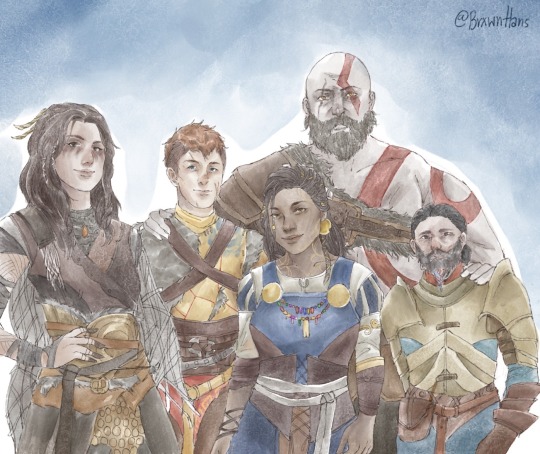
Reference :
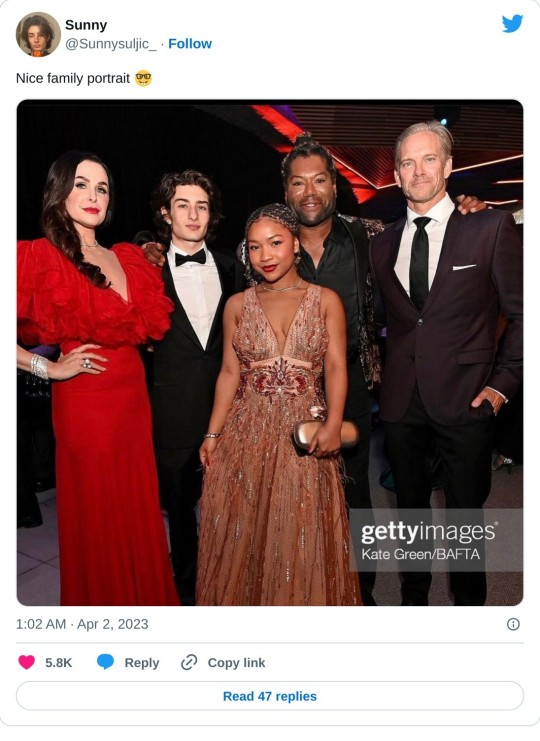
548 notes
·
View notes